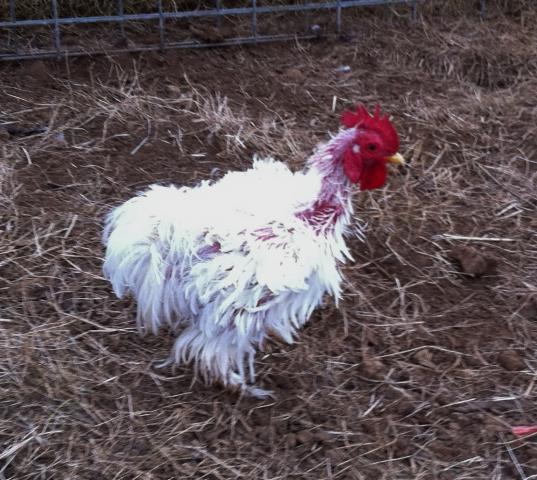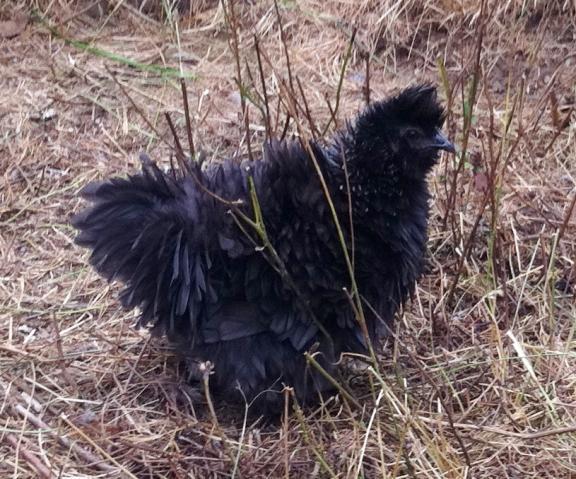UPDATE: My White Super Frizzle Rooster is as ugly as ever, still has blotchy red skin and looks part bald and raggedy but he is healthy and happy at 11 months old. I keep him in a large outdoor pen with all our baby chicks so he is out of the free range population of approx. 125 chickens of all shapes and sizes and gave him a little black cochin hen for a mate. I then chose a couple eggs and hatched them under a broody hen as a test. We got 2 black chicks, one is smooth and the other is the beautiful little perfect frizzle you see below!! I still feel a little nervous about hatching out his offspring (fear of another super frizzle) but I guess you all were right about breeding smooth to frizzle and there being nothing wrong with a super frizzle other then their odd look and possible skin problems. We certainly would never follow in the poor breeding practices of the breeder we got our super frizzle rooster from and breed frizzle to frizzle, it just isn't right to breed animals knowing you will end up with some super frizzle chicks that grow up unwanted and plagued by skin issues. Thanks all!







